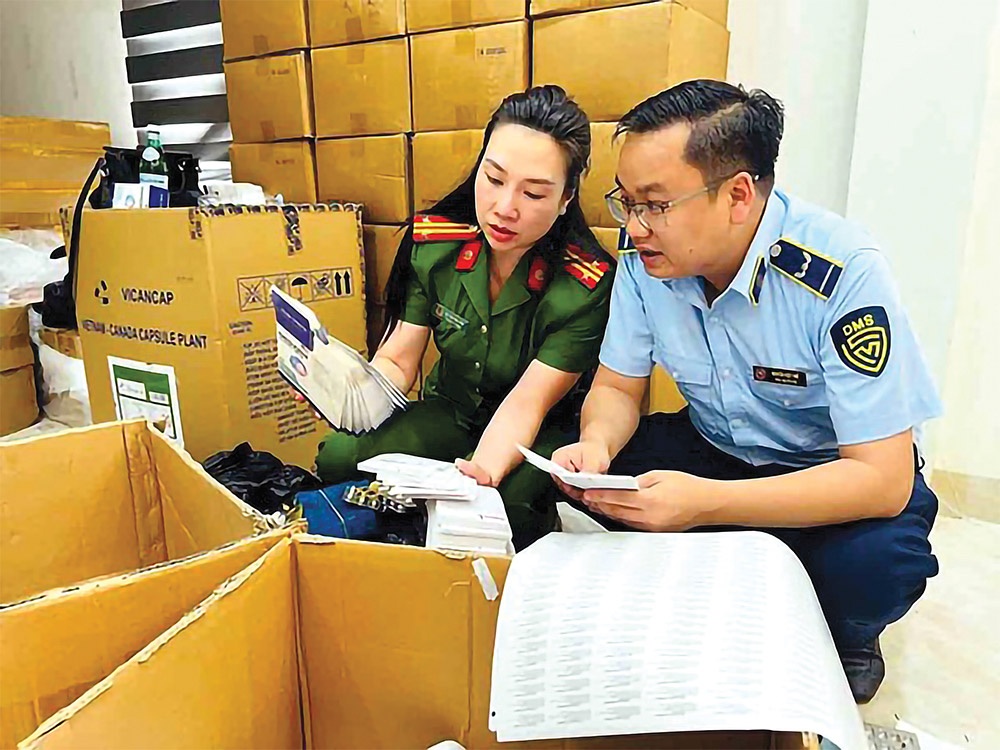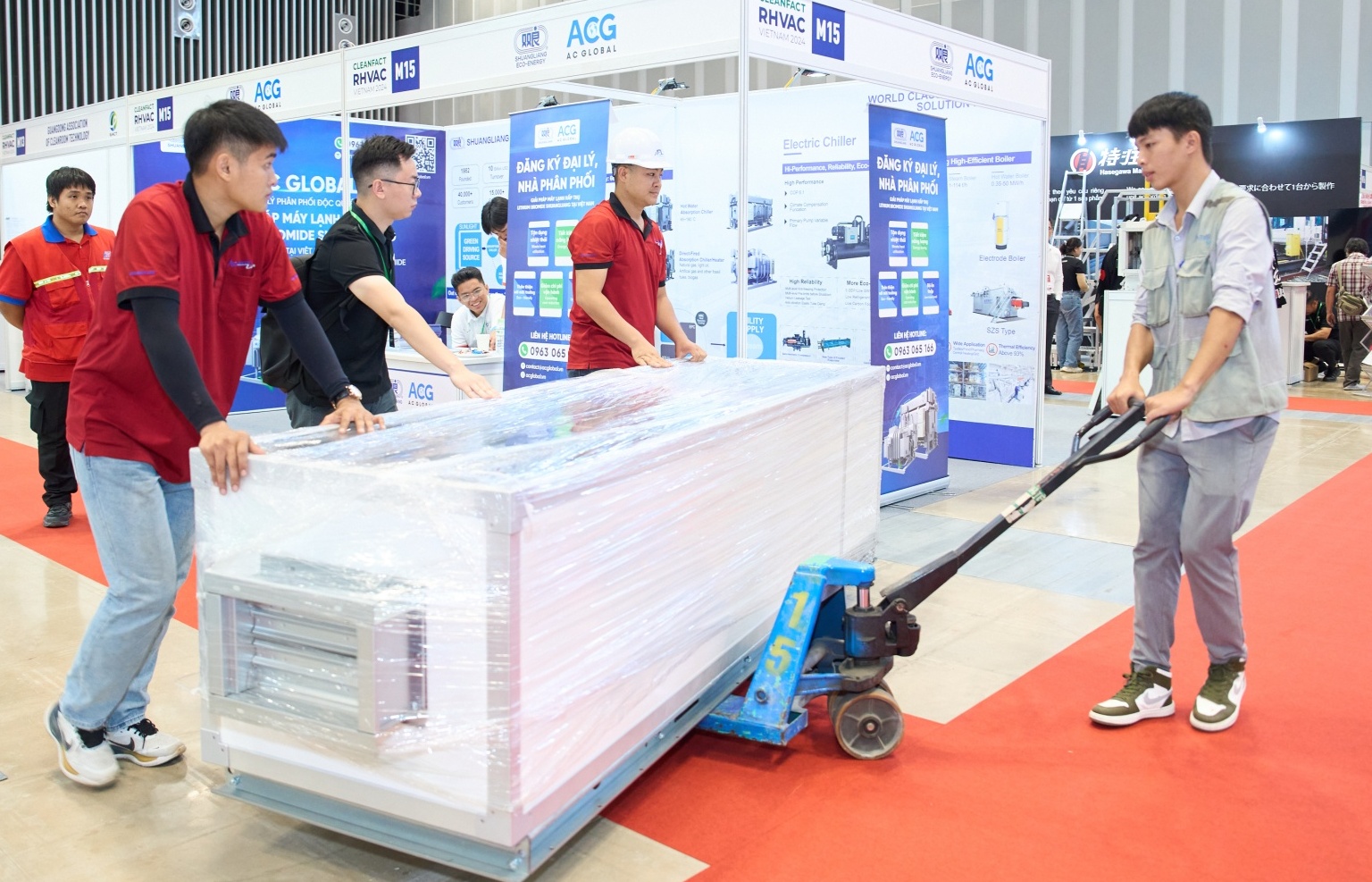Crackdown increases on fake drugs
The Ministry of Health (MoH) has held many meetings in recent days with relevant ministries, agencies, and localities on fake drugs, cosmetics, and functional foods, after many companies have been revealed to be partaking in wrongdoing.
 |
| Authorities are pulling out all the stops to destroy products that are unfit for use, photo Le Toan |
Deputy Minister of Health Do Xuan Tuyen admitted, “Despite the Law on Pharmacy, the Law on Food Safety, and many guiding documents, the situation of counterfeit drugs and functional foods is still complicated. This proves that the current legal framework does not really ensure deterrence and effective enforcement.”
He requested units to comprehensively review current regulations and propose amendments to make the implementation process stricter.
According to health experts, the amount of fake and low-quality medicines nationwide is becoming rampant. Along with light punishments and legal loopholes, the post-inspection mechanism overlaps among ministries and localities, leading to poor quality control.
Health expert Hoa Nguyen noted, “This is not the first time we have found lots of fake and low-quality drugs, but failed to take proper measures to deal with them. It is high time for Vietnam to learn from other countries to increase efficiency of state management, from ingredients to final products and market circulation, to better protect people’s health.”
The Drug Administration of Vietnam (DAV) under the MoH in mid-May announced many violations, including the recall of violating cosmetics from VB Group produced at EBC Dong Nai Medical Factory.
VB Group is being asked to withdraw its Hanayuki Sunscreen Body 100gm product, and then send a report to the DAV before June 15. The MoH also asked the Departments of Health of Ho Chi Minh City and Dong Nai province to impose fines as ruled.
The DAV also sent a document to Uyen Phuong Import Export Trading JSC, asking the company to withdraw Hair Head & Hair Revitalising Oleo-Essence under the Germaine De Capuccini brand, for having product sub-label containing disease prevention and treatment content like medicines, and with incorrect ingredients.
This company is also requested to report to the DAV about the withdrawal and destruction of the products prior to June 14.
Also in May, similar requests were sent to many other companies, including Quang Xanh Cosmetics and Chemicals Co., Ltd., Linh Anh General Trading & Service Co., Ltd., and Hana HP Group.
In May, the Ho Chi Minh City Department of Health established an inter-agency team to conduct unexpected inspections of pharmaceutical businesses, and requested medical examination and treatment establishments to urgently check for fake drugs, medical equipment, and functional foods.
Director of Ho Chi Minh City Department of Health Tang Chi Thuong said, “This inspection focused on high-risk groups such as producers and traders of medicinal herbs, traditional medicines, and functional foods. The inspection took place in the context that authorities have continuously discovered establishments producing and trading in fake medicines, functional foods, milk, and medical equipment, affecting people’s health.”
In 2024, the municipal department inspected hundreds of drug and medicinal material businesses, handing 147 establishments fines totalling more than VND7 billion ($280,000). Common violations were mostly related to the origins and quality of drugs.
Ta Manh Hung, deputy general of the DAV, admitted that the legal framework is in place, but the penalties are too light compared to the consequences. According to regulations, only cases of counterfeit goods trading worth VND30 million ($1,200) or higher are subject to criminal prosecution. Small-scale cases are often only subject to small administrative penalties.
For instance, a business selling fake medicine with a value of around VND30,000 ($1.15) will only receive a fine around VND2-6 million ($80-240) if only a few bottles are discovered. If goods of unknown origin are valued at under VND1 million ($40), the punishment is a warning and a fine of only around VND600,000-1 million ($25-40).
Tran Viet Nga, general director of the MoH’s Department of Food Safety, said that according to existing regulations, enterprises have the right to self-declare the quality of food products and general health protection, empowering them to take responsibility for themselves. This is except for four groups that are strictly controlled.
“Smuggling, commercial fraud, production, and trading of counterfeit goods operate in a tightly organised manner, over a large area, inter-provincially and internationally, with increasingly sophisticated methods and tricks,” Nga explained. “They take advantage of the open policy on business registration and registration of health food product declarations to evade responsibility and violate the rules.”
 | Nationwide sweep targets counterfeit food and drugs Counterfeit goods, particularly milk, medicines, and functional foods, were the key focus of a government press briefing on May 6. |
What the stars mean:
★ Poor ★ ★ Promising ★★★ Good ★★★★ Very good ★★★★★ Exceptional
Related Contents
Latest News
More News
- Delegation examines effective handling of public assets (June 05, 2025 | 11:39)
- Techcombank brings talent roadshow to Europe after U.S. success (June 04, 2025 | 15:40)
- Blue Cross builds seamless cross-border healthcare with GBA institutions (June 04, 2025 | 13:00)
- Kim Long Motor delivers electric buses to South Korea (June 04, 2025 | 11:11)
- Octa broker survey reveals Malaysian traders prioritise security (June 04, 2025 | 11:00)
- Wildberries launches Wibes app, enters social e-commerce space (June 04, 2025 | 10:00)
- Dual industrial expos to deepen Japan-Vietnam supply chain cooperation (June 04, 2025 | 09:26)
- Beijing tea week blends tradition and art in Chaoyang (June 04, 2025 | 08:00)
- UAE’s DP World ties up with VIMC Lines to launch coastal logistics service in the south (June 03, 2025 | 15:34)
- SCG achieves strong EBITDA, profit growth across all businesses in Q1 (June 03, 2025 | 15:28)


 Tag:
Tag:



















 Mobile Version
Mobile Version